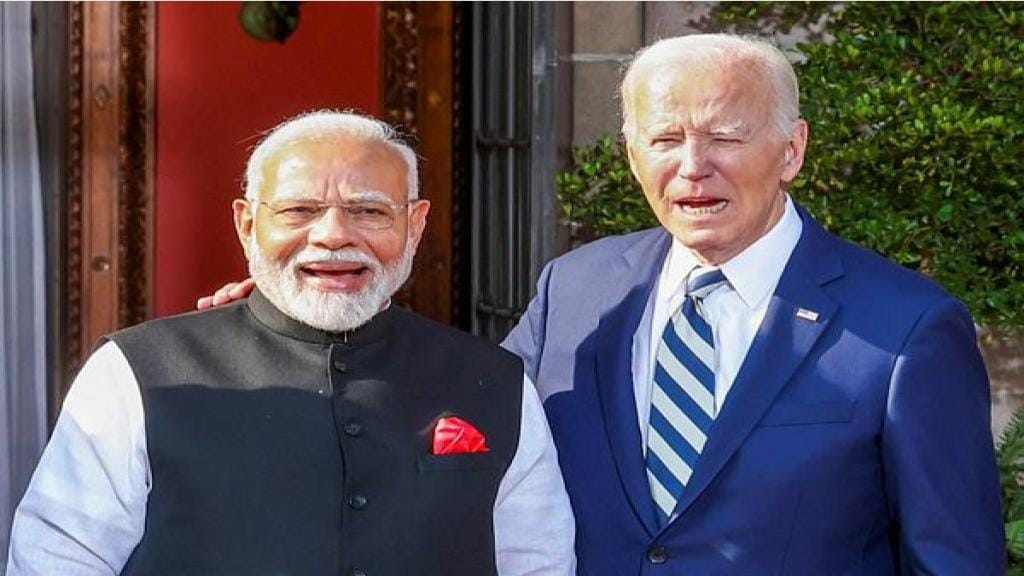In a landmark move to bolster India’s defence capabilities, the Cabinet Committee on Security (CCS), chaired by Prime Minister Narendra Modi, has approved two strategic projects: the procurement of 31 armed drones from the US and the indigenous development of two nuclear-powered attack submarines. The decision related to the armed drones comes at a crucial juncture, with the US Presidential elections just around the corner, underscoring the significance of the deal for both nations.
The focus of this announcement is India’s acquisition of 31 MQ-9B Predator drones from General Atomics. Valued at approximately $3.99 billion, the deal marks a transformative moment in India’s defence modernization efforts. It also highlights the evolving strategic partnership between India and the US, a relationship that has seen substantial progress in recent years, particularly in the defence sector.
Strategic Importance of the Drone Deal
The acquisition of the MQ-9B Predator drones is not just another defence purchase; it represents a significant leap forward for India’s intelligence, surveillance, and reconnaissance (ISR) capabilities. These drones, capable of flying for up to 40 hours at a stretch, are armed with precision-strike missiles and can hit targets on land, at sea, and in the air. This makes them invaluable assets for the Indian Armed Forces, particularly in monitoring sensitive areas such as the Line of Actual Control (LAC) with China and the vast expanse of the Indian Ocean.
The deal, which includes 16 Sky Guardian and 15 Sea Guardian variants, will be pivotal in enhancing India’s maritime and territorial security. The Indian Navy is set to receive 15 of these drones, while the Indian Army and Air Force will each get eight. Their ability to provide real-time surveillance and conduct precision strikes in high-threat environments makes them critical in maintaining regional stability and securing India’s national interests.
Moreover, the timing of the deal is crucial. With a deadline of October 31, 2024, to finalize the agreement, any delay could lead to price renegotiations or further setbacks. The urgency of the acquisition reflects India’s commitment to strengthening its unmanned aerial capabilities, particularly as regional security concerns continue to escalate.
Dr Vivek Lall: The Key Architect behind the Deal
While the MQ-9B drone procurement is a strategic victory for India, much of its success can be attributed to the efforts of Dr Vivek Lall, Chief Executive of General Atomics Global Corporation. He has played a pivotal role in negotiating and securing the release of these advanced drones to India, marking a historic development in US-India defence relations.
Known for his expertise in defence trade and diplomacy, Dr. Lall has been instrumental in strengthening the defence ties between India and the US. His efforts in facilitating the MQ-9B deal have been particularly crucial, ensuring that the Indian Armed Forces receive state-of-the-art technology to enhance their operational capabilities.
His influence extends beyond the drone deal itself. Under his leadership, General Atomics has identified several Indian companies that will play critical roles in maintaining and potentially manufacturing components for these drones. This move not only underscores the importance of the deal in strengthening India’s defence capabilities but also contributes to the country’s goal of bolstering indigenous defence manufacturing under the “Make in India” initiative.
A Boost to India’s Defence Modernization
The procurement of the MQ-9B drones is part of a broader defence modernization strategy aimed at enhancing India’s military posture in the Indo-Pacific region. These drones will serve as vital tools for intelligence gathering, surveillance, and precision strikes, significantly boosting India’s ISR capabilities.
The deal also includes advanced technologies and weaponry that will further enhance the operational effectiveness of the MQ-9B drones. This package includes 161 Embedded Global Positioning & Inertial Navigation Systems (EGIs), 35 L3 Rio Grande Communications Intelligence Sensor Suites, 170 AGM-114R Hellfire missiles, and 310 GBU-39B/B Laser Small Diameter Bombs (LSDB). Together, these systems will enable the Indian Armed Forces to conduct precision strikes and gather critical intelligence with unprecedented accuracy.
Strengthening India-US Defence Ties
The MQ-9B drone deal is not just a bilateral transaction; it is a testament to the deepening strategic partnership between India and the US. During Prime Minister Modi’s recent visit to the US, significant progress was made in defence cooperation, with the drone acquisition being one of the key outcomes of his bilateral discussions with President Joe Biden.
This deal, facilitated through the US Foreign Military Sales (FMS) program, simplifies defence transactions between the two governments and reflects the growing trust and collaboration between India and the US in the defence sector. As both nations work to address common security challenges, particularly in the Indo-Pacific, this procurement serves as a milestone in their shared commitment to peace and stability in the region.
Bottomline
The acquisition of 31 MQ-9B Predator drones from the US marks a pivotal moment in India’s defence modernization efforts. With the deal set to enhance the country’s ISR capabilities and strengthen its maritime and territorial security, it is a significant step toward maintaining regional stability in the Indo-Pacific.
As India continues to modernize its military and strengthen its strategic partnerships, this drone deal serves as a crucial component of its broader defence strategy, positioning the country as a formidable force in an increasingly complex global security landscape.

